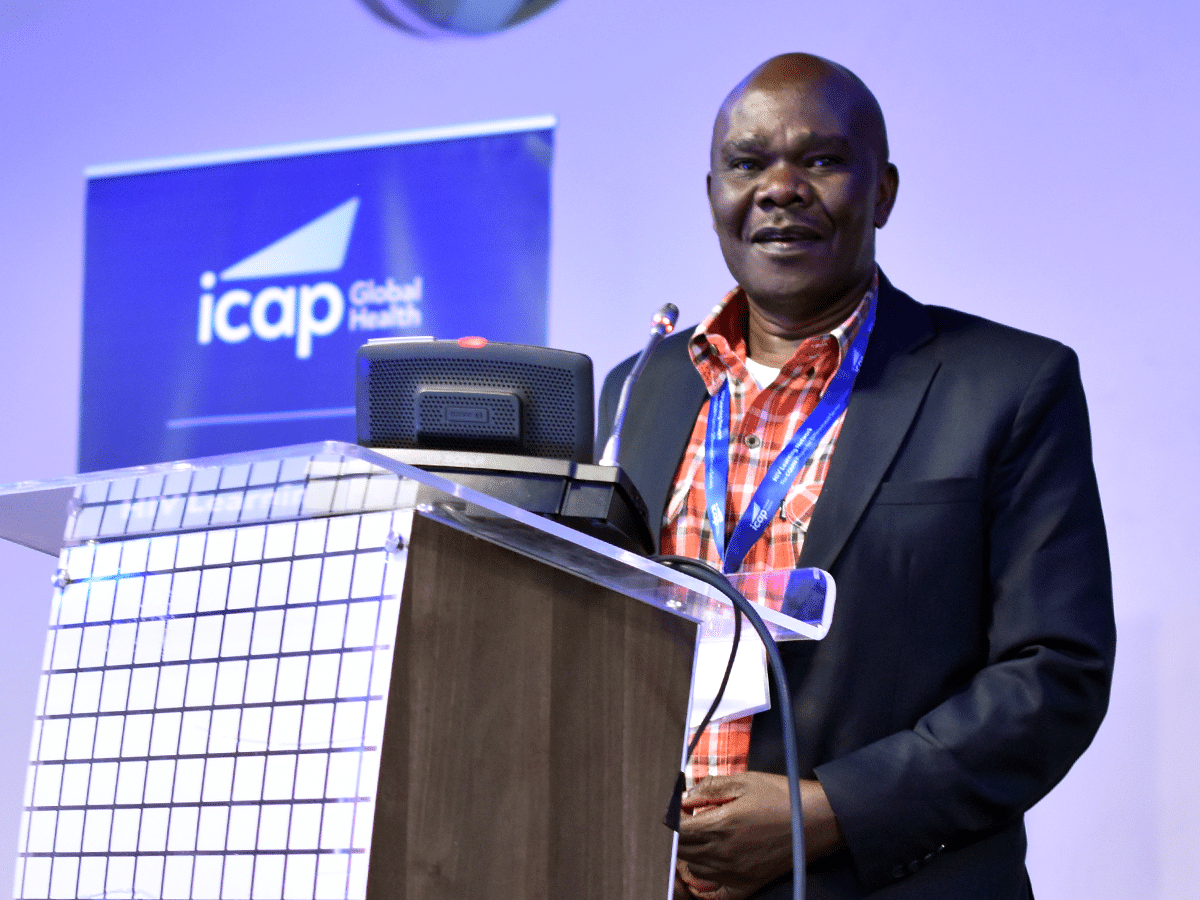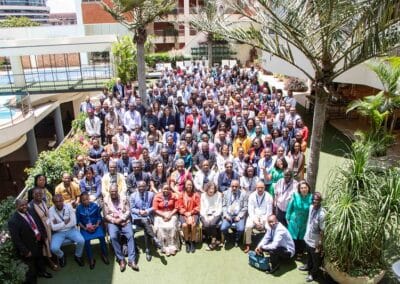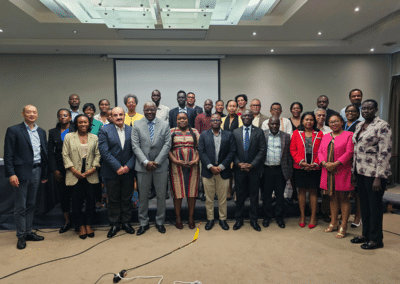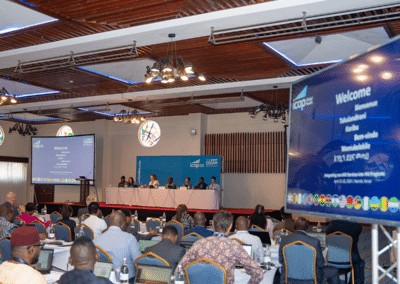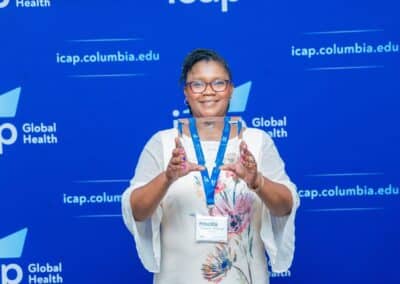CQUIN always aims to ensure that the voices of recipients of care living with HIV are prioritized in DSD policy, implementation, and evaluation through effective and meaningful community engagement. At the CQUIN 7th Annual Meeting, Nelson Otwoma, director for the National Empowerment Network of People Living with HIV/AIDS in Kenya (NEPHAK), shared a presentation on how the collaboration between NEPHAK and the Ministry of Health’s National AIDS and STI Control Program (NASCOP) has led to improved person-centered services for recipients of care. In this Q&A, he gives an overview of progress made with community engagement in Kenya.
What were some of the challenges and issues for recipients of care prior to active community engagement in national HIV programs?
HIV national program engagement with recipients of care has always happened in Kenya, but in different ways. For instance, in the past, when approaching commemorative events like World AIDS Day, partners like the CDC, Global Fund, and HIV implementing partners would invite people living with HIV to speak about their experiences, but that was all. So, the engagement was sporadic and not meaningful.
Now, we got into the space of CQUIN. Do you know why CQUIN is important? It’s because they brought the community and the Ministry of Health together (MOH). Other organizations outside CQUIN can tell you how to become a good advocate and activist, but if the person who is supposed to engage you [the ministry] is not there, you get back to your country, and people at the ministry think you’re fighting them. Here at the CQUIN meetings, with MOH in the room, they start to appreciate the value of having a one-on-one discussion with the recipient of care community.
Now, when the MOH forms technical working groups – you know that name alone, ordinarily, what is a person living with HIV doing in a technical working group with technicians? But through CQUIN, the ministry has come to understand that the community person’s experience means they have valuable feedback to provide.
What deliberate steps did NASCOP take to start actively engaging the community?
When NASCOP was revising the 2022 ART guidelines, they sent us a letter asking for four people, including a young person and a woman, to sit on a committee to contribute. When they unveiled the guidelines, they included recipient of care representatives during health care workers training to discuss service preferences. I say this is entirely due to CQUIN; initially, it wasn’t like that. Before, the ministry would only inform us about the release of the guidelines telling us what they would do and then request for a person living with HIV to speak at an event, just a one-off thing. Now, during MOH training, facility visits, discussions on HIV service delivery, and DSD rollout, they engage communities.
You talked about NEPHAK’s collaboration and support for NASCOP in your presentation. Can you tell us more about those activities?
We deal with this at different levels. On our own, we have to sensitize our network in Nairobi, at the regional and county levels, to understand where our country is going — a new guideline has been released; sensitization is going on. So even from the network, we nominate trainer-of-trainers, who are trained on the guidelines to go and educate others. Another level is treatment literacy. We’re looking for people who understand HIV. U=U [undetectable = untransmissible], TB [tuberculosis], NCDs [non-communicable diseases], and how they relate to HIV so they’re useful to their colleague recipient-of-care when they ask questions. We also sensitize them to community engagement. A particular community wants to form a community ART group; this is how to approach it, and this is the guidance. We also ask the MOH to educate our representatives on their agenda so that when they go out for monitoring and evaluation, visits, or any sort of educational event, for instance, we are seen as a team. These activities have allowed us to give feedback to the ministry.
What would you like to see improve with community engagement in DSD programs?
In my presentation, I said our engagement is stronger at the national and policy level with the ministry and NASCOP. But when you go to some facilities, particularly where implementing partners are funding programs, they are more focused on targets, that are then communicated to recipients of care from a top-down level. That way, it is disempowering, and the community doesn’t have a chance to express their struggles and the treatment they desire.
The other point is that most health care workers hold tighter at the community level. They don’t trust that recipients of care would adhere to treatment if they are given several months of medication. If they can be sensitized more and people educated more, that would be better.
Some of the advocacy work we do also costs money. When I come to the CQUIN meetings, ICAP pays for me, but if I’m in Nairobi and NASCOP has invited me to an event in Western Kenya, who takes care of that? Sometimes, the ministry does give us the space to participate and engage, but communities do not because they don’t have the means. So maybe if the IP partners can support the communities, that would be desirable. For now, NEPHAK has global fund support, but it is limited to a few counties where Global Fund programs are implemented. We don’t have PEPFAR support, and that is a big challenge. Again, if partners can make provisions to shape and support, that would be good.


